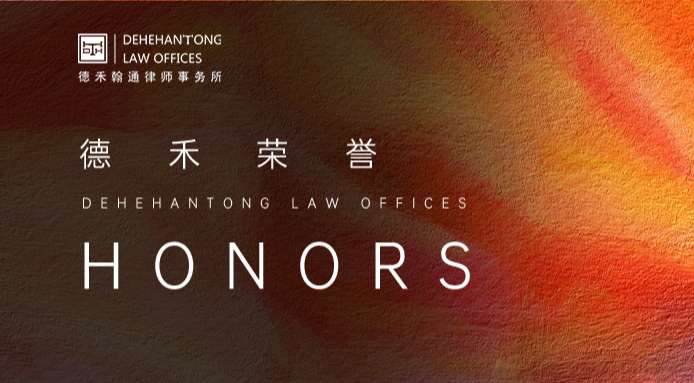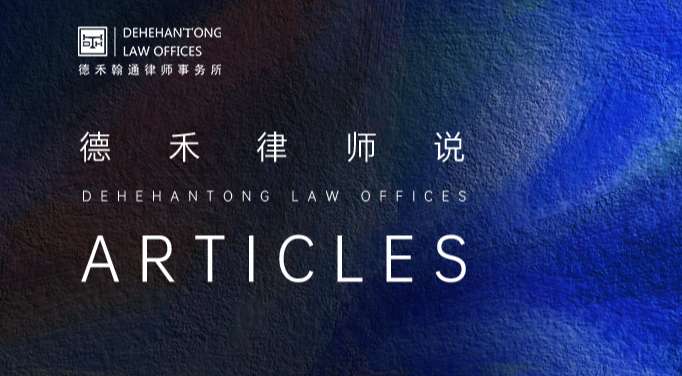"Ban the Box" - How can California employers comply with regulations by understanding Job seekers' criminal History
"Ban the Box" was originally an initiative campaign in the United States, aiming to encourage employers to remove the checkbox (" Box ") for "Criminal record" from job application forms, so that job seekers would not be treated differently due to criminal records at the initial stage. Considering the differences in cultural background, several rules under the Ban the Box may be unfamiliar to Chinese employers who hire employees in the United States. Therefore, the author has specially written this article to introduce the requirements of the Ban the Box rule under California law.
First,overview of Regulations
On January 1, 2018, The Fair Chance Act (" the Fair Opportunity Act ") came into effect in California and became part of the California Fair Employment and Housing Act (commonly translated as the California Fair Employment and Housing Act).
The Fair Opportunity Act requires private and public sector employers with more than five employees, with a few exceptions, not to inquire or investigate a job seeker's past criminal record before offering a conditional offer. For example, among other things, eligible employers shall not:
(1) Inquire about criminal records on the job application form of this company;
(2) Before issuing a conditional offer, understand the criminal record of the job seeker through background checks or online verifications.
(3) And clearly state in the job advertisement that this position does not recruit individuals with criminal records.
California's Ban the Box rule does not apply to agricultural labor contractors, state criminal justice agencies, certain positions in medical institutions (such as nurses, pharmacists, mental hospital staff, etc.), and any other positions where background checks are required by law or employment restrictions based on criminal records (such as child care positions).
Second, employers can only access limited information
After offering a conditional offer, employers often ask job seekers to voluntarily disclose their past criminal records. The employers themselves may also conduct investigations on their own or through third-party companies. However, job seekers do not need to disclose the following information themselves. If employers obtain such information on their own, they cannot take it into consideration during the recruitment process:
(1) Arrest without conviction;
(2) Any conviction that has been revoked, sealed or dismissed, as well as any conviction for which the applicant has obtained a full pardon or a certificate of rehabilitation;
(3) Records of charges or convictions that have been withdrawn, sealed or erased after a party has successfully completed a pretrial or posttrial diversion plan (such as a drug court or a mental health court);
(4) A conviction for non-felony cannabis possession for more than two years;
(5) Convictions or other decisions made by juvenile courts.
Third,personalized assessment of job seekers with criminal Records
If a job seeker does have a criminal record, employers cannot directly refuse to hire them on the grounds that they have a criminal record or have committed specific crimes before. Instead, they need to conduct an Individualized Assessment of the job seeker. To determine whether the job seeker's past criminal acts have a negative impact on the specific position and specific job content they are applying for this time. In the process of personalized assessment, employers usually need to consider the following factors:
(1) The nature and severity of the previous crime;
(2) The time elapsed since the previous crime and the time elapsed since the release from prison; (3) Whether there is a possibility that the previous crime will occur again in this work (for example, if there was theft before, whether there is a possibility of coming into contact with the company's property in this work).
If, based on the personalized assessment results, the employer decides to withdraw the conditional offer previously issued, then the employer is obligated to notify the job seeker in writing and inform them that the decision to withdraw the offer is only preliminary and non-final. In this notice, employers need to inform job seekers of the following matters:
(1) What criminal cause led the employer to decide to withdraw the previous conditional offer?
(2) A copy of the background investigation report;
(3) Inform the job seeker that they have the right to submit evidence regarding their reform and other mitigating circumstances as a response before the employer makes a formal decision to withdraw the offer.
(4) Inform them of the latest deadline for making further responses.
Upon receiving the aforementioned notice, if the job seeker provides further information in response (such as explanations of the reasons for their crime, efforts to reform after the crime, etc.), the employer is obligated to conduct a new round of assessment (reassessment) and formally inform the job seeker of the assessment results.
Fourth,stricter regional regulations
If each region has enacted an ordinance that is stricter than California's uniform Fair Opportunity Act or provides more protection for job seekers, such ordinance should be given priority.
For example, the Fair Chance Ordinance in San Francisco requires employers to state in job advertisements that qualified job seekers with criminal and arrest records will be considered. The Fair Chance Initiative for Hiring Ordinance of Los Angeles applies to employers with 10 or more employees. When job seekers have a criminal record, although California's uniform Fair Opportunity Act does not require the assessment to be conducted in writing, However, Los Angeles requires employers to use specific template forms to evaluate job seekers.
Fifth,conclusion
The core value behind the concept of "Ban the Box" is to give every job seeker a fair opportunity to showcase their abilities and potential, rather than allowing past mistakes to become an obstacle to entering the workplace forever. For employers, this is not only a compliance requirement but also reflects the value orientation of corporate social responsibility and diversity and inclusion.
For Chinese enterprises that employ staff in the United States or companies with branches in the United States, it is crucial to understand and comply with the "Ban the Box" rules at the California and local levels. It requires enterprises to establish more detailed compliance mechanisms in human resource systems, recruitment processes, and background checks, so as to respect legal requirements while maintaining the safety of their personnel and risk prevention and control.
Recommended Information
-
HonorsLawyer Jiang Chun of Dehehantong was included in the 2025 China Lawyers Ranking list of Asialaw Profiles2025-11-06
-
HonorsDehehantong was selected for the "2026 Hurun Smart List - TOP100 Recommended Law Firms in Greater China" list2025-11-06
-
UpdatesLawyers from Dehehantong were invited to give a lecture to students of the Law School of Shanghai University2025-10-29
-
Case StudiesDehehantong successfully defended: The amount involved in intellectual property crimes was reduced and he was granted probation2025-10-27
-
UpdatesDehehantong Lanzhou Office has been approved for establishment, marking a new chapter in the blueprint for the development of the western region2025-10-24















